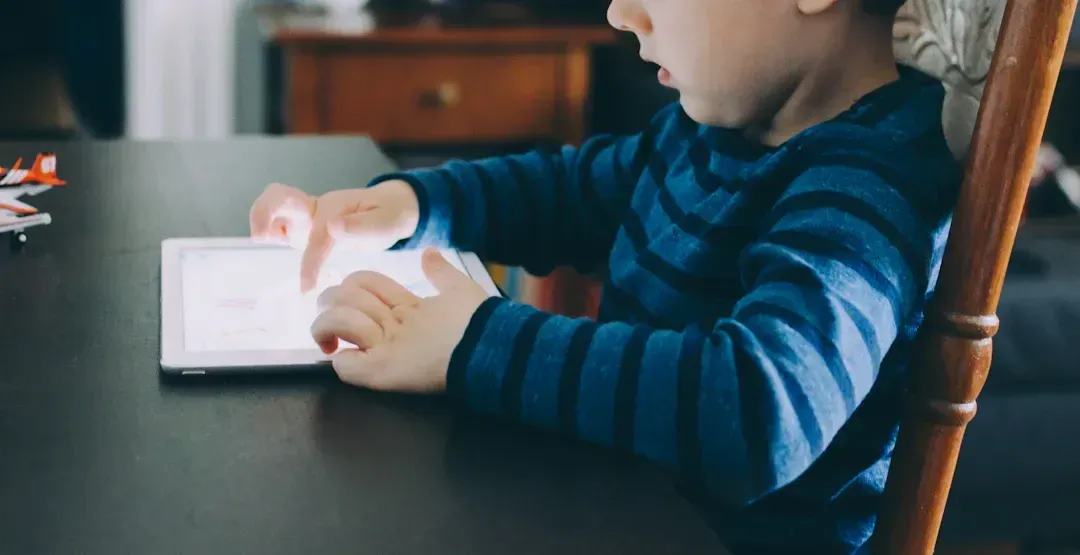Add your medium length title here
News & Updates
Children and Screen Time: Evidence-Based Insights for Parents – by Vivian Havlin

In the digital age, screens are an integral part of everyday life. From smartphones and tablets to computers and televisions, screens are a constant presence in children’s environments. Whether for learning, entertainment, or communication, screen time has become a significant part of how children interact with the world around them. However, as parents and caregivers, it's important to consider how much screen time is appropriate for children and the potential impact it may have on their development.
This blog will explore evidence-based research on the effects of screen time on children, offering insights into the benefits and risks while providing practical tips for managing screen time in a healthy way.
What Does Research Say About Screen Time for Children?
Over the past decade, numerous studies have been conducted to examine how screen time impacts children’s physical, cognitive, and emotional development. The American Academy of Pediatrics (AAP), World Health Organization (WHO), and other leading health organizations have provided guidelines based on extensive research into the effects of screen time on children.
1. Physical Health and Development
Excessive screen time has been linked to several physical health concerns in children, including:
• Obesity: One of the most concerning physical effects of prolonged screen time is its association with obesity. Studies show that children who spend more time in front of screens are more likely to engage in sedentary behaviors, such as sitting for long periods of time, which can contribute to weight gain and an increased risk of obesity. In fact, a study published in The Lancet Child & Adolescent Health found that every additional hour of screen time per day was associated with a higher risk of obesity in children.
• Sleep Disruptions: Research consistently shows that excessive screen time, particularly before bed, can interfere with children’s sleep patterns. The blue light emitted from screens inhibits the production of melatonin, the hormone responsible for regulating sleep. A study published in the Journal of Clinical Sleep Medicine found that children who used screens before bedtime had later bedtimes, shorter sleep durations, and poorer sleep quality.
• Vision Problems: Long-term screen use can also lead to eye strain, a condition commonly referred to as “computer vision syndrome.” Symptoms can include headaches, dry eyes, blurred vision, and difficulty focusing. Research shows that children who spend extended hours on digital devices may experience more frequent eye strain due to prolonged close-up viewing.
2. Cognitive and Academic Impact
While screens can be valuable tools for learning, the evidence on their effects on children’s cognitive development is mixed. Some studies highlight potential educational benefits, while others raise concerns.
• Positive Effects on Learning: Educational apps, interactive websites, and learning-based television programs can promote cognitive skills, such as language development, problem-solving, and critical thinking. For example, a study published in Pediatrics found that young children who used educational screen time (such as educational videos or apps) had improved language skills compared to those who did not.
• Negative Effects on Attention and Focus: Excessive recreational screen time, such as playing video games or watching TV, has been associated with attention problems and reduced academic performance. A 2019 study in JAMA Pediatrics found that children who spent more than two hours per day on screens showed reduced attention spans and academic difficulties. The fast-paced nature of many digital media content is thought to contribute to difficulties with sustained attention in children.
3. Social and Emotional Development
The impact of screen time on children’s social and emotional development is one of the most debated topics in recent research. While some screen time may facilitate social connections, especially through communication tools like video calls or social media, there are concerns about its effect on face-to-face interactions and emotional well-being.
• Reduced Social Skills: One of the most significant concerns is that excessive screen time can hinder children’s development of social skills. Spending too much time on screens, rather than engaging in face-to-face interactions, may affect children’s ability to read social cues, develop empathy, and build meaningful relationships. According to research published in Computers in Human Behavior, children who spent more time on screens had fewer social interactions with peers and adults, which could lead to social isolation and loneliness.
• Mental Health: There is growing evidence that excessive screen time is linked to mental health issues in children and adolescents. A study published in The Lancet Psychiatry found that increased screen time, particularly on social media, is associated with higher rates of depression and anxiety in teenagers. The constant exposure to curated, idealized images on social media can lead to issues with self-esteem and body image. Moreover, the overstimulation from screens can make it harder for children to manage stress and emotions.
How Much Screen Time Is Too Much?
The key to managing screen time for children lies in moderation and balance. The AAP and WHO have set guidelines to help parents determine how much screen time is appropriate for children at different ages:
• For children under 2 years old: The WHO recommends no screen time at all, except for video calls with family and friends.
• For children aged 2 to 5 years old: The AAP recommends limiting screen time to one hour per day of high-quality, educational content. Parents should ensure that screen time does not interfere with physical activity or sleep.
• For children aged 6 years and older: The AAP advises that parents set consistent limits on screen time to ensure that it does not interfere with sleep, physical activity, and other healthy behaviors. For this age group, screen time should be limited to a balance of educational and recreational content, with a focus on maintaining a healthy lifestyle.
Practical Tips for Managing Screen Time
1. Model Healthy Screen Habits: Children learn by observing the behavior of adults. Set a positive example by limiting your own screen time and prioritizing face-to-face interactions and physical activities.
2. Establish Screen Time Limits: Create consistent rules about screen time, such as no screens during meals, or limiting screen use to certain hours of the day. Make sure to encourage breaks and outdoor activities to balance screen time with physical movement.
3. Prioritize Quality Content: When children do use screens, ensure they are engaging with age-appropriate, educational content that promotes learning and creativity. Avoid passive, mindless screen use, such as excessive TV watching, in favor of interactive learning apps or videos.
4. Encourage Physical Activity: Encourage children to balance screen time with active play. Physical activity is crucial for their health and development, and it helps counteract the sedentary behavior associated with excessive screen use.
5. Foster Social Interaction: Encourage face-to-face socialization, playdates, and family time to help children develop their social and emotional skills away from screens.
Finding the Right Balance
While screen time is inevitable in today’s world, it’s important to find a balance that supports children’s development while safeguarding their health and well-being. I personally struggle with this myself at home with my child, but putting in a conscious effort each day gives me a little peace of mind. While evidence-based research suggests that too much screen time can have negative consequences on children’s physical, cognitive, and emotional growth, I know it’s difficult as our children do not always understand. However, when used appropriately and in moderation, screens can offer educational benefits and help children stay connected with others.
By setting limits, prioritizing quality content, and promoting physical activity and face-to-face interactions, parents can help their children develop healthy screen habits that will serve them well in the future. As with many aspects of parenting, balance is key—and when it comes to screen time, it’s all about ensuring that children have the tools to thrive both online and offline.
Until next time, stay informed, stay safe, and watch out for one another. Because when we know better, we protect better.
Need help or have questions?
📞 Call our office at 305-470-1670
🌐 Visit us online at www.citizenscrimewatch.org
Recent Posts











